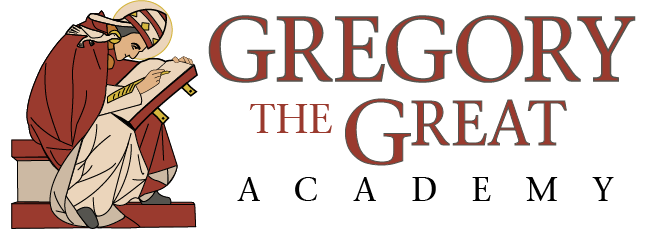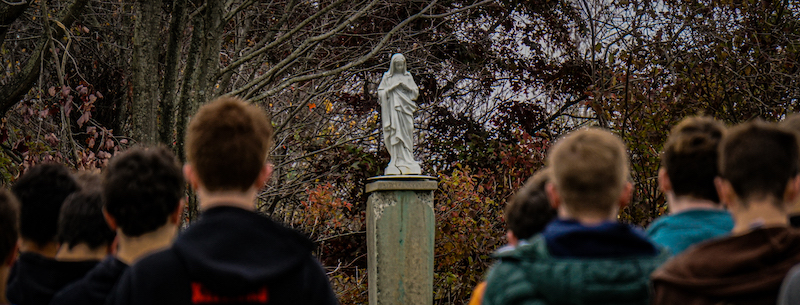Human beings possess a hierarchy of powers. We experience the world first physically through our senses, we respond emotionally to what we sense, we conform our will to love the good, true, and beautiful or hate the evil, false, and ugly, and we reason about meaning and our place in God’s world. The complete man must not ignore any aspect of this hierarchy.
At Gregory the Great Academy, teachers point to wondrous things, showing the boys in what way things are wonderful, and giving things the esteem that is their due. In this way, students gain an integrated vision of the world, with each of its parts ordered toward mutual dependence on the Creator. First, the students experience with their senses. Subjective experience is not disparaged at the Academy, and boys cannot help but respond emotionally to beauty in the world, goodness in the saints, truth in our holy Faith. These first steps in knowledge seem natural, but must be encouraged and put in their right order. Emotions move students to conform their wills to goodness, truth, and beauty. Finally, teachers themselves reason with their students about the place every created thing has in the world God made.
Parts only make sense in view of the whole, and every whole is just another part in God’s creation. Seeing the world thus integrated is the goal of liberal education, an education which grants a willing learner “the power of viewing many things at once as a whole, of referring them severally to their true place in the universal system, of understanding their respective values and determining their mutual dependence,” as Cardinal Newman says. Ultimately, this integrated vision leads to Christ.
As one cannot teach what he himself does not have, one of our primary academic requirements for our teachers has been that they themselves have this integral vision of things. When a teacher has this vision the same will be reflected in his teaching. With a grounding in just sentiments for the reality of truth and goodness as manifested in Creation, teachers are a driving force which make students thirst for learning and for Christ.
Plato taught that teaching is a species of friendship, whose highest degree is love, in which persons see each other as integral parts of something greater than themselves—a marriage, a family, a school, a nation, a faith. In the pursuit of happiness while involved in any type of friendship, we have to ask what the whole thing is: what are all those activities and commitments part of? What is the integer? What is the whole? If a student forgets everything he learned at school or college, he had best remember this one question. It will be on the very final examination that his own conscience will make at the last hour of his life: in the pursuit of horizons—of horizontal things—have you failed to raise your eyes and mind and heart up to the stars, to the reason for things, and beyond, as Dante says at the top of the tower in his poem:
“The love which moves the sun
And all the other stars?”

